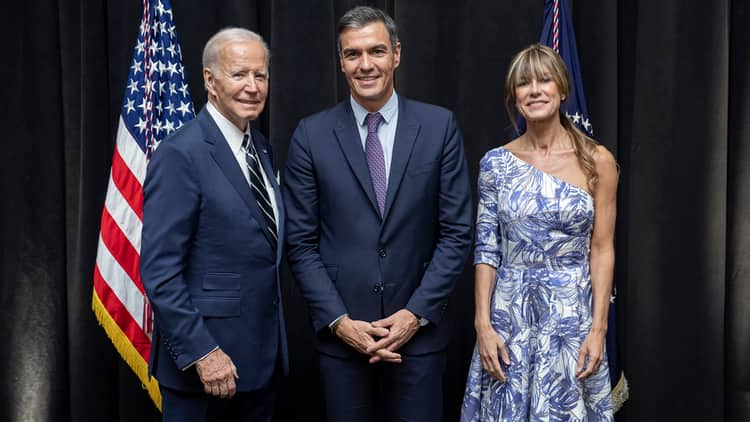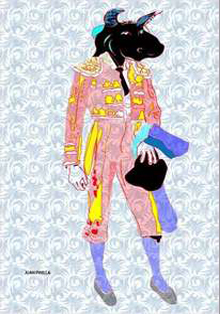Ángel Collado
Pedro Sánchez has opted for international promotion at the start of the political year and in the run-up to the 2023 elections, with local elections in June and general elections in December at the latest.
The head of the Spanish government is running for president of the Socialist International from November, when its congress meets in Madrid; he is forging closer ties with the new left-wing Ibero-American presidents and adopting the populist rhetoric that until now has been more typical of his Podemos allies.
The announcements of donations, speeches, meetings and interviews held by Sánchez last week in New York on the occasion of the UN assembly are also part of the ‘global actor’ campaign organised by the presidency of the government to boost the personal image of its head of state at home. Down and second behind the PP president, Alberto Núñez Feijóo, in all the polls except the barometer of the official Centro de Investigaciones Sociológicas, the Socialist leader is now focusing on foreign policy as an asset for relaunching his image.
Government sources boast of the international role played by Sánchez since he hosted the NATO summit held in Madrid last June, of his harmony with the president of the Commission, Ursula von der Leyen, and of his ability to present himself as a new beacon of the left with his commitment to feminism and his alarm over climate change. In the same media, obsessed with Feijóo, they spread the idea that this external prominence serves the socialist leader to stand out from the figure of the head of the opposition.
Sánchez’s image campaign was supported in New York, at the expense of the Spanish state, with the announcement of a donation of 237 million euros for the promotion of global health (130 million for the global AIDS fund promoted by Bill Gates), another 236 million for food security and another 100 million for organisations working for gender equality.
In addition, the chief executive took the opportunity to participate together with the president of Chile, Gabriel Boric, in a tribute to Salvador Allende, the president of the Republic of Chile who died in the military coup of 1973. Sánchez claimed to be the continuator of Allende’s struggle for “social justice” with a speech of the most left-wing line that he has been cultivating since this summer.
In a single year, the President of the Government has gone from surrounding himself with Spain’s leading businessmen at the start of the political year to repeating in all spheres and at all venues a speech against the economic powers (or “dark” as he now defines those same leaders) who he says are conspiring against him, claiming to be above democracy and going against the workers.
Sánchez’s turn, or posturing, in assuming the postulates of the most populist left was accompanied by the confirmation that he wants to head this autumn the Socialist International now chaired by the Greek Yorgos Papandreou, in office since 2006. The outgoing politician’s party, the decades-long ruling Pasok, languishes in the country’s parliament in a coalition that failed to win more than 6 percent of the vote in the last elections.
Papandreou’s takeover, scheduled to take place at the congress that will bring together socialist and social democratic parties from around the world in Madrid on 25-27 November, will give the head of the Spanish government a new title to add to his particular lustre as a “global player”, especially on the left.
The PSOE secretary general’s hopes of remaining in power when the 2023 electoral cycle comes to an end depend on first rebounding in public opinion with an image as “the people’s president” in the face of an opposition that he places at the service of “the economic powers”.
Then, in May, the party will have to deal with the municipal and regional elections in which the socialists will be playing for the distribution of local and part of regional power. And, as a final straw, after the summer, Sánchez’s facet as a “global actor” will come into play once again, as it will be his turn to hold the rotating presidency of the European Union. It will be the last and simultaneous appointment before the elections for the president of the government and candidate for re-election.







